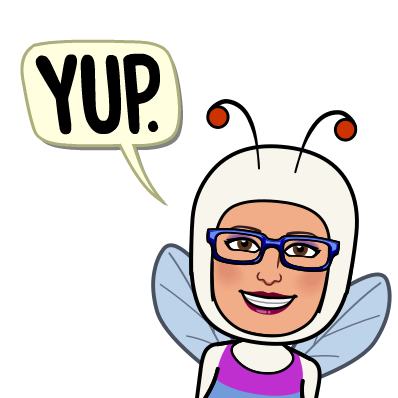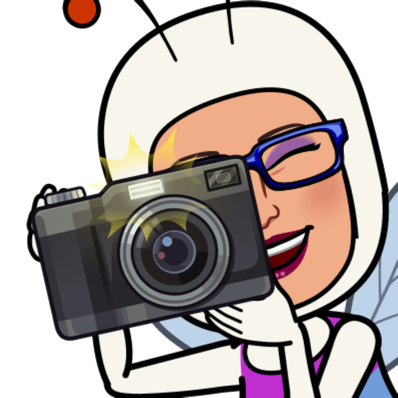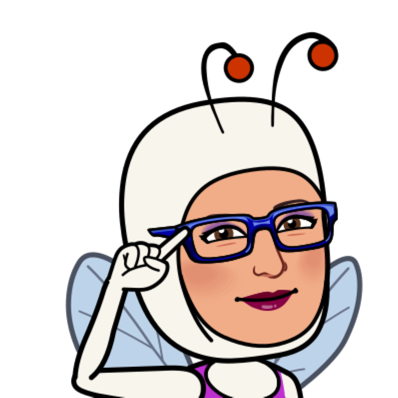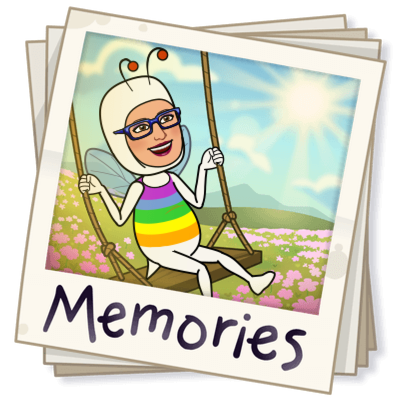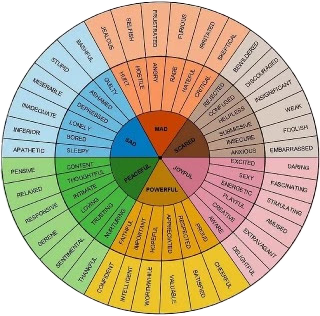What About Programming Around Other Subject Areas?

Although literature is a great springboard for thematic programming, math and science are also great anchors for integrated programming. Both subjects appeal to a child’s natural curiosity of patterning, number sense and geometry and the way the real natural world operates. Both these subjects convey a sense of mystery and magic. You can find fiction literature that combines many principles and strategies of both subjects and even more availability can be found with non-fiction books, articles and websites, giving a great lead into practicing research skills.
Engaging: To begin investigating these ‘huge’ subjects, that can seem overwhelming when investigating with little ones, start with brainstorming and mind mapping. The following suggestion is a less structured version of the KWL charts (What we know, Want to Know and What we Learned).
Grab a large piece of paper and a couple colours of markers, crayons or pencil crayons. First, choose a writing instrument colour, mention the topic ( it can be the general subject, or for little ones, I suggest that you can use the application topics; listed below and ask: Is there math when we …?) and write their thoughts on the piece of paper. Ask what they know, and with that same colour write down everything that they tell you that they know about the topic. Then choose another writing instrument colour and ask what more they would like to know. These ideas might stem from what they already know (you can link these ideas with a dash or line) or they might be totally new – printing them in another space. Then grab another writing instrument colour and ask them to pick one of topics that they would like to know more about and print your brainstorming ideas as to how you can find out more.
Next, follow your child’s lead/ suggestions as to how you can find out more about the topic and you can gently prod them with questions that can tease out further strategies for investigation. If this topic doesn’t go far you can return to the chart and look into another area of interest. Once you have exhausted the interest in a topic go back to your chart and with another special colour you can print down all the neat new ideas you learned through your ‘play’.

Math
Is there math when we are:
- Playing Games
- Cooking/Baking
- Building/Sewing
- Shopping or Selling
- Designing/Art
- Creating a small business like a lemonade stand
How? Can we try? Proceed to engage in these various activities. These can take the form of a week of intense ‘play with math’ using the above activities.
Science
Can we be science magicians and make things change and record how things change?
When experimenting with these topics, create a record book (showing them the purprose of writing is to collect data/information, use the camera on your phone to record pictures and videos). Draw pictures as things change.
- Sink and Float
- https://happyhooligans.ca/sink-or-float-experiment-preschoolers/
- https://learning-center.homesciencetools.com/article/sink-and-float-science-projects/
- https://www.adabofgluewilldo.com/sink-float-science-experiment-using-balloons/
- Water table – bath time
- Dancing raisins – raisins in soda water
- Materials or shapes experiment with different kinds in water
- Oil, water
- Quick sand verses sand or water
- Chemical changes
- https://happyhooligans.ca/chemical-reactions-for-preschoolers/
- Food: Baking/Cooking Recipes
- Health: Chemical changes due to nutrition
- Goop
- Temperature changes
- https://www.lovemyscience.com/cat_temperature.html
- Baking
- Freezing
- Melting
- Sweating
- Steam
- Cooling-dehumidifying
- Body temperature
- Weather
- Growth/Decay
- Building
- https://littlebinsforlittlehands.com/best-structure-building-activities-kids/
- https://fun-a-day.com/fun-science-experiments-and-sensory-play/
- Structures, foundations, stability
- Tools and the benefits of using simple tools
Again, like with math, the science activities can form the foundation of the week’s activities. As you ‘play’ with the topic you can incorporate language with reading related literature, non-fiction, doing research, recording, presenting findings, writing reports or stories on topic, creating recipes even introducing the scientific method. https://www.thesprucecrafts.com/science-magic-tricks-2268213

Dazzle’s Challenge:
- Follow your child’s lead when investigating topics. Let go, Let God. Relinquish you need to control and keep everything looking neat and pretty. Learning is messy!
Not so Quick Listing of Links to Help Learning of Math and Science:
- Math
- A great site from Canada’s largest school board TDSB!
- Games:
- Worksheets
- Amazing Math Guru Marilyn Burns
- http://www.marilynburnsmathblog.com/five-twists-on-tic-tac-toe/
- https://www.scholastic.com/teachers/articles/teaching-content/marilyn-burns-10-big-math-ideas/
- http://www.marilynburnsmathblog.com/using-childrens-literature-to-teach-math/
- https://www.goodreads.com/author/list/3683.Marilyn_Burns
- https://www.hmhco.com/products/do-the-math/math-reads/support-materials.htm
- Literature
- https://www.weareteachers.com/picture-books-about-math/
- Science
- https://www.education.com/activity/kindergarten/science/
- https://www.momjunction.com/articles/science-activities-and-experiments-for-kindergarten_00385455/
- https://www.verywellfamily.com/typical-kindergarten-science-curriculum-1448844
- https://funlearningforkids.com/science-activities-preschoolers/
- https://youtu.be/KxMPDNU7dMU
- https://www.kindergarten-lessons.com/teaching-science/
- Lots of ads but lots of good idea be patient as you scroll
- https://littlebinsforlittlehands.com/how-to-set-up-preschool-science-centers-tables/
- https://mommypoppins.com/kids/50-easy-science-experiments-for-kids-fun-educational-activities-using-household-stuff
- Literature
- https://www.stem.org.uk/teaching-science-through-stories
Note:
- Literature programming can get you through the first 2-3 months of the school year, getting you to just before Christmas. Two weeks can be spent around a Christmas theme. Math and Science can lead you into a magical start to the new year.
What About Programming Around Other Subject Areas?
Although literature is a great springboard for thematic programming, math and science are also great anchors for integrated programming. Both subjects appeal to a child’s natural curiosity of patterning, number sense and geometry and the way the real natural world operates. Both these subjects convey a sense of mystery and magic. You can find fiction literature that combines many principles and strategies of both subjects and even more availability can be found with non-fiction books, articles and websites, giving a great lead into practicing research skills.
Engaging: To begin investigating these ‘huge’ subjects, that can seem overwhelming when investigating with little ones, start with brainstorming and mind mapping. The following suggestion is a less structured version of the KWL charts (What we know, Want to Know and What we Learned).
Grab a large piece of paper and a couple colours of markers, crayons or pencil crayons. First, choose a writing instrument colour, mention the topic ( it can be the general subject, or for little ones, I suggest that you can use the application topics; listed below and ask: Is there math when we …?) and write their thoughts on the piece of paper. Ask what they know, and with that same colour write down everything that they tell you that they know about the topic. Then choose another writing instrument colour and ask what more they would like to know. These ideas might stem from what they already know (you can link these ideas with a dash or line) or they might be totally new – printing them in another space. Then grab another writing instrument colour and ask them to pick one of topics that they would like to know more about and print your brainstorming ideas as to how you can find out more.
Next, follow your child’s lead/ suggestions as to how you can find out more about the topic and you can gently prod them with questions that can tease out further strategies for investigation. If this topic doesn’t go far you can return to the chart and look into another area of interest. Once you have exhausted the interest in a topic go back to your chart and with another special colour you can print down all the neat new ideas you learned through your ‘play’.


Math
Is there math when we are:
- Playing Games
- Cooking/Baking
- Building/Sewing
- Shopping or Selling
- Designing/Art
- Creating a small business like a lemonade stand
How? Can we try? Proceed to engage in these various activities. These can take the form of a week of intense ‘play with math’ using the above activities.
Science
Can we be science magicians and make things change and record how things change?
When experimenting with these topics, create a record book (showing them the purprose of writing is to collect data/information, use the camera on your phone to record pictures and videos). Draw pictures as things change.
- Sink and Float
- https://happyhooligans.ca/sink-or-float-experiment-preschoolers/
- https://learning-center.homesciencetools.com/article/sink-and-float-science-projects/
- https://www.adabofgluewilldo.com/sink-float-science-experiment-using-balloons/
- Water table – bath time
- Dancing raisins – raisins in soda water
- Materials or shapes experiment with different kinds in water
- Oil, water
- Quick sand verses sand or water
- Chemical changes
- https://happyhooligans.ca/chemical-reactions-for-preschoolers/
- Food: Baking/Cooking Recipes
- Health: Chemical changes due to nutrition
- Goop
- Temperature changes
- https://www.lovemyscience.com/cat_temperature.html
- Baking
- Freezing
- Melting
- Sweating
- Steam
- Cooling-dehumidifying
- Body temperature
- Weather
- Growth/Decay
- Building
- https://littlebinsforlittlehands.com/best-structure-building-activities-kids/
- https://fun-a-day.com/fun-science-experiments-and-sensory-play/
- Structures, foundations, stability
- Tools and the benefits of using simple tools
Again, like with math, the science activities can form the foundation of the week’s activities. As you ‘play’ with the topic you can incorporate language with reading related literature, non-fiction, doing research, recording, presenting findings, writing reports or stories on topic, creating recipes even introducing the scientific method. https://www.thesprucecrafts.com/science-magic-tricks-2268213


Dazzle’s Challenge:
- Follow your child’s lead when investigating topics. Let go, Let God. Relinquish you need to control and keep everything looking neat and pretty. Learning is messy!
Not so Quick Listing of Links to Help Learning of Math and Science:
- Math
- A great site from Canada’s largest school board TDSB!
- Games:
- Worksheets
- Amazing Math Guru Marilyn Burns
- http://www.marilynburnsmathblog.com/five-twists-on-tic-tac-toe/
- https://www.scholastic.com/teachers/articles/teaching-content/marilyn-burns-10-big-math-ideas/
- http://www.marilynburnsmathblog.com/using-childrens-literature-to-teach-math/
- https://www.goodreads.com/author/list/3683.Marilyn_Burns
- https://www.hmhco.com/products/do-the-math/math-reads/support-materials.htm
- Literature
- https://www.weareteachers.com/picture-books-about-math/
- Science
- https://www.education.com/activity/kindergarten/science/
- https://www.momjunction.com/articles/science-activities-and-experiments-for-kindergarten_00385455/
- https://www.verywellfamily.com/typical-kindergarten-science-curriculum-1448844
- https://funlearningforkids.com/science-activities-preschoolers/
- https://youtu.be/KxMPDNU7dMU
- https://www.kindergarten-lessons.com/teaching-science/
- Lots of ads but lots of good idea be patient as you scroll
- https://littlebinsforlittlehands.com/how-to-set-up-preschool-science-centers-tables/
- https://mommypoppins.com/kids/50-easy-science-experiments-for-kids-fun-educational-activities-using-household-stuff
- Literature
- https://www.stem.org.uk/teaching-science-through-stories
Note:
- Literature programming can get you through the first 2-3 months of the school year, getting you to just before Christmas. Two weeks can be spent around a Christmas theme. Math and Science can lead you into a magical start to the new year.

